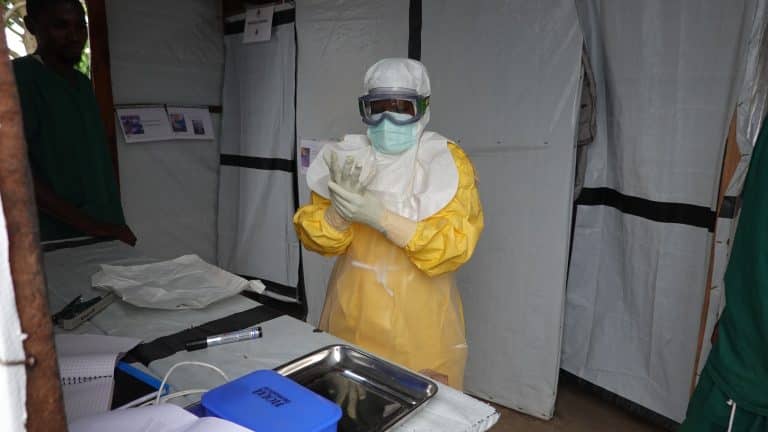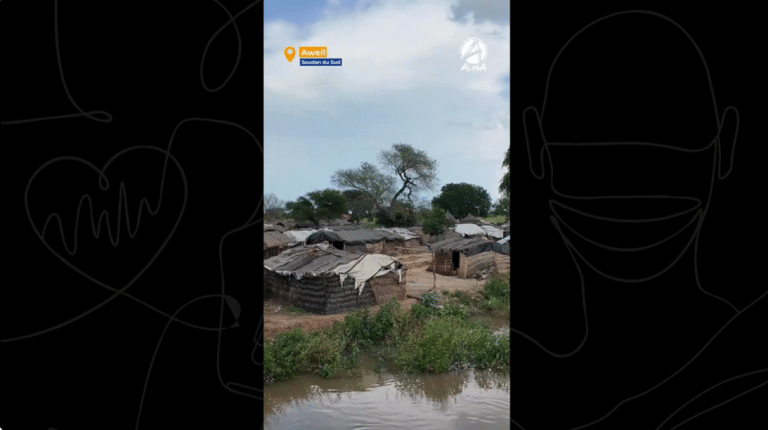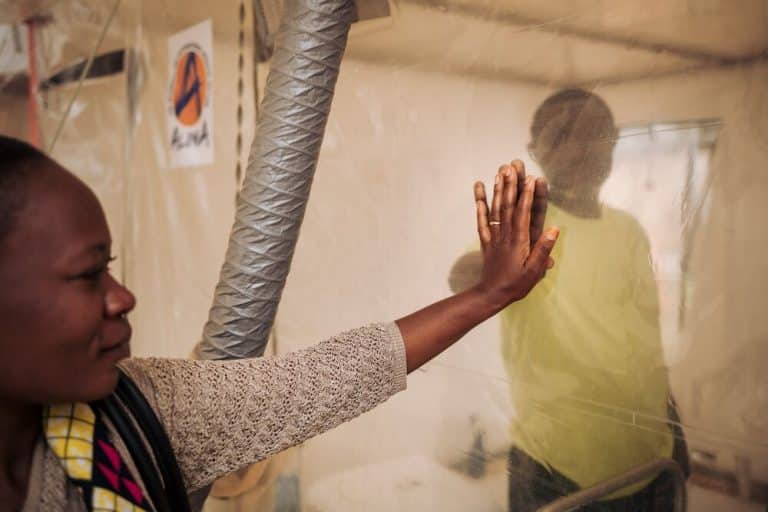Measles
Once under control, measles is now on the rise, particularly in Africa. This highly contagious viral disease poses a major threat to vulnerable populations.
ALIMA (The Alliance for International Medical Action) intervenes to limit its spread, vaccinate and treat affected patients.
What is measles?
Measles is a viral disease caused by the measles virus, a paramyxovirus that is exclusively transmissible between humans.
Why is measles dangerous?
- In 30% of cases, it leads to serious complications
- Increased risks in infants, pregnant women, and immunocompromised individuals
- Can result in pneumonia, malnutrition, encephalitis, or blindness
How is measles transmitted?
The virus is spread through direct contact and respiratory droplets (saliva, cough, sneezing). An infected person can transmit the virus to nearly any unvaccinated person they encounter.
Factors increasing transmission:
- Low vaccination rates
- Overcrowding and population groupings
- Weak healthcare systems
What are the symptoms of measles?
Measles begins with cold-like symptoms before developing into its characteristic symptoms.
Main symptoms
- High fever (appears 10-12 days after exposure)
- Rhinorrhea (runny nose) and cough
- Red, watery eyes
- Rash:
- Begins on the face
- Spreads to the extremities within three days
- Lasts around a week
Possible complications
- Severe dehydration
- Malnutrition
- Pneumonia and respiratory infections
- Encephalitis (severe neurological involvement)
- Fetal risks of infection during pregnancy
Take action
Support the fight against measles
Your donations help vaccinate and provide medical care to the most vulnerable children.
Measles treatment and management
While there is no specific cure for measles, early medical intervention helps reduce the risk of complications.
Symptomatic treatments
- Antipyretic drugs for fever (paracetamol)
- Rehydration in case of diarrhea
- Antibiotics to prevent or treat secondary bacterial infections
- Vitamin A to reduce the severity of symptoms
Prevention: measles vaccine
The vaccine is the best protection against measles.
Vaccination recommendations
- First dose: between 9 and 12 months
- Second dose: between 16 and 18 months
- Target coverage: 95% to ensure community protection
Measles in Africa: a major challenge
Despite the availability of a vaccine, measles outbreaks continue to affect regions like the Horn of Africa and West Africa.
Why is measles on the rise?
- Insufficient immunization coverage
- Conflict and displacement
- Lack of access to healthcare and vaccines
ALIMA's response to measles
Key actions on the ground
- Mass vaccination campaigns: 27,000 children vaccinated in Niger in 2023
- Emergency response in Guinea and Nigeria: 190,000 children vaccinated
- Training of healthcare workers to improve patient care
- Medical care and distribution of treatment kits
- Nutritional support for malnourished children with measles
Intervention example: Democratic Republic of Congo (DRC)
In the DRC, ALIMA is strengthening epidemiological surveillance and organizing targeted responses to outbreaks.
On the ground
Related news

Three Months to Eradicate Ebola: The Power of Collective Action in Kasai
After three months of collective mobilization, the 16th Ebola outbreak in the Democratic Republic of the Congo (DRC) was declared over on November 30, 2025.

South Sudan: when the climate crisis becomes a health crisis
In Aweil, recurring floods cut off entire villages. Malaria, diarrhea, pneumonia: children are on the front lines. Since 2025, ALIMA has been deploying an emergency

Ebola in Kasai: A Race Against Time!
Since late August, a new Ebola outbreak has struck Kasai in the Democratic Republic of Congo. With 40 deaths already and more than 1,400 contacts


